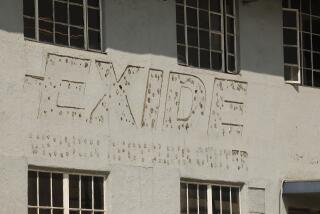EPA Seeking Record Toxic Waste Fine of $6.8 Million
CHICAGO — The Environmental Protection Agency announced Thursday that it is seeking the largest toxic waste penalty in its history, $6.8 million, against Chemical Waste Management Inc. of suburban Oak Brook.
The agency filed a civil administrative complaint with the EPA’s regional hearing clerk, alleging that the toxic waste-handler violated federal regulations governing the “use, record keeping and marking of PCBs between 1980 and 1983” in storing the material.
Chemical Waste Management spokesman Bob Reincke said no environmental damage was caused at the site.
“We believe the penalty demand is excessive and inequitable . . . disproportionately high when compared with other EPA penalty demands,” Reincke said.
The penalty is the largest ever sought by the federal government under the Toxic Substances Control Act, an EPA spokesman said.
The complaint is the culmination of an 18-month federal investigation into PCB-handling practices at the company’s Vickery, Ohio, plant, the EPA said.
Studies have shown PCBs, or polychlorinated biphenyls, cause liver damage in humans and cancer in laboratory animals. Used for half a century as insulators and coolants in a variety of industrial products, primarily electric transformers, the EPA banned their production in 1976.
The EPA contends that Chemical Waste Management employees at the Vickery site illegally discharged high levels of PCBs into waste lagoons in an effort to dilute the PCBs and avoid the federal regulation requiring PCBs to be destroyed by incineration.
The agency also charges that more than 6 million gallons of contaminated liquid later were sold by the company as reclaimed oil.
The EPA said Chemical Waste Management has 20 days to respond to the charges. A company challenge would be heard first by an administrative law judge and could be further appealed to the U.S. District Court.
If there is no response within 20 days, the company would be liable for the full amount of the fine.
More to Read
Sign up for Essential California
The most important California stories and recommendations in your inbox every morning.
You may occasionally receive promotional content from the Los Angeles Times.









